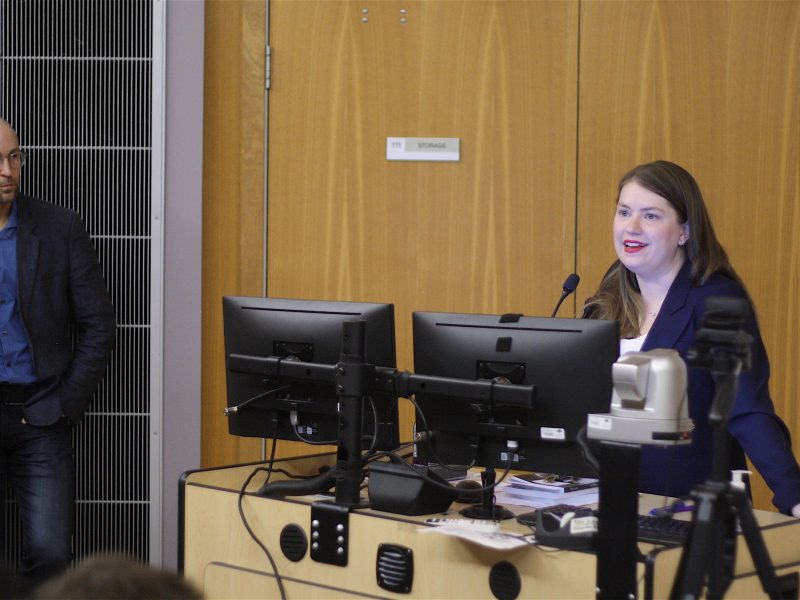
On Monday night, as business across the country ground to a halt, a group of dozens of women small business owners in communities across Canada gathered for a conference call to support one another.
We took turns describing the threat COVID-19 posed to the businesses we’ve poured our savings and lives into and placed our current business risk level on a scale of green to red: most were in the orange to red zone. Our companies, from a wide range of industries, are grappling with a cash-flow crisis that could lead to their failure within months if not weeks.
Our businesses are profitable and growing in normal times. We are leading the way creating socially and environmentally sustainable jobs of the future: our companies pay a living wage and hire people with barriers to employment to create cutting edge innovations like zero waste grocery stores, toys that teach empathy, Indigenous-centred wellness products, and the list goes on.
We know that women-led small businesses are significantly under-capitalized compared to other companies, and are more vulnerable to failure as a result of an interruption of business or significant revenue decline. Moreover, as the Canadian Women’s Foundation has shown, the implications of COVID-19 disproportionately impact women because we already experience a gender pay gap and carry a disproportionate load of unpaid care-giving and household duties.
While Wednesday’s aid package will help businesses that have cash reserves make it through a slowdown, it will not prevent massive layoffs at undercapitalized small businesses like ours. With $27-billion in aid and $55-billion in tax deferrals, this package gives two thirds of the support to the companies that are better prepared to deal with the current situation. Research has shown that trickle down economics does not work even long-term, never mind in a short-term emergency situation like this.
The issues faced by women-led companies are the same as those faced by small businesses across Canada. And so government officials working around-the-clock right now can learn from our situation.

The number one concern that came up in our Monday call: how will we pay our people? Many of our small businesses will be able to withstand an interruption in business if we can also interrupt our biggest expense: labour. But 10 per cent in payroll subsidy is not nearly sufficient for us to retain employees and avoid layoffs.
We’re encouraged to see the direct support for workers including increases to the child tax credit and support for those not eligible for EI. Our employees can’t live in cities like Vancouver and Toronto on the 55 per cent of their wages provided by EI, and we won’t leave them out in the cold. So this safety net gives us some comfort.
But we don’t want to resort to layoffs. We would be disassembling fully-trained, functional teams we need in normal times, then shouldering the cost of recruiting and training employees when the time comes to put our teams back together.
We need more significant wage relief, such as the 75 per cent subsidy announced by Denmark for up to three months, to guarantee our workers’ incomes and protect sustainable jobs. If we can hold on to them through this temporary interruption in business, that will solve most of the problem for us. Call it trickle up economics.
It’s now clear that the economy is going to halt for at least a couple of months. To come out the other side alive, companies need a breather too. The best way for the government to support us while keeping consumers spending is to guarantee workers’ income so that businesses get relief from supplying that income.
Companies that were viable and growing before the present crisis can be again afterward. If companies’ personnel can be retained, the economy can be restarted like flicking a switch. By supporting workers, we’ll avoid taking apart the teams that are the engine of our economy.
Increasing our access to debt won’t solve this problem. We need to allow our staff to comply with the social-distancing directives of our provincial health authorities without bankrupting themselves or our companies. And, for like many small businesses, we already carry debt loads we can barely manage.
In the same way that we’re all practicing social distancing to protect the people most vulnerable to COVID-19 in our communities, we need to focus stimulus efforts to prevent the failure of the most vulnerable part of our economy: small businesses, especially those that are undercapitalized like women-owned companies.
An economic package that ensures businesses like ours survive, by helping us help our workers, will help all small businesses and the employees and communities we serve.
Erin Millar, The Discourse
Suzanne Siemens, Aisle (formerly Lunapads)
Teara Fraser, Iskwew Air
BE Alink, The Alinker
Sheena Russell, Made With Local
Hayley Mullins, Joeyband
Devon Fiddler, SheNative Goods
Monique Cherrie, Makeshift Work Space
Brianne Miller, Nada
Patrice Mousseau, Satya Organics
Suzanne Tyson, HigherEdPoints.com
Sonia Strobel, Skipper Otto
Emily Bland, SucSeed
Ilana Ben-Ari, Twenty One Toys
Elize Shirdel, HELM Life
Brandi Schier, Sun Peaks Independent News
Valerie Song, AVA Technologies Inc.
Margaret Magdesian, Ananda Devices



